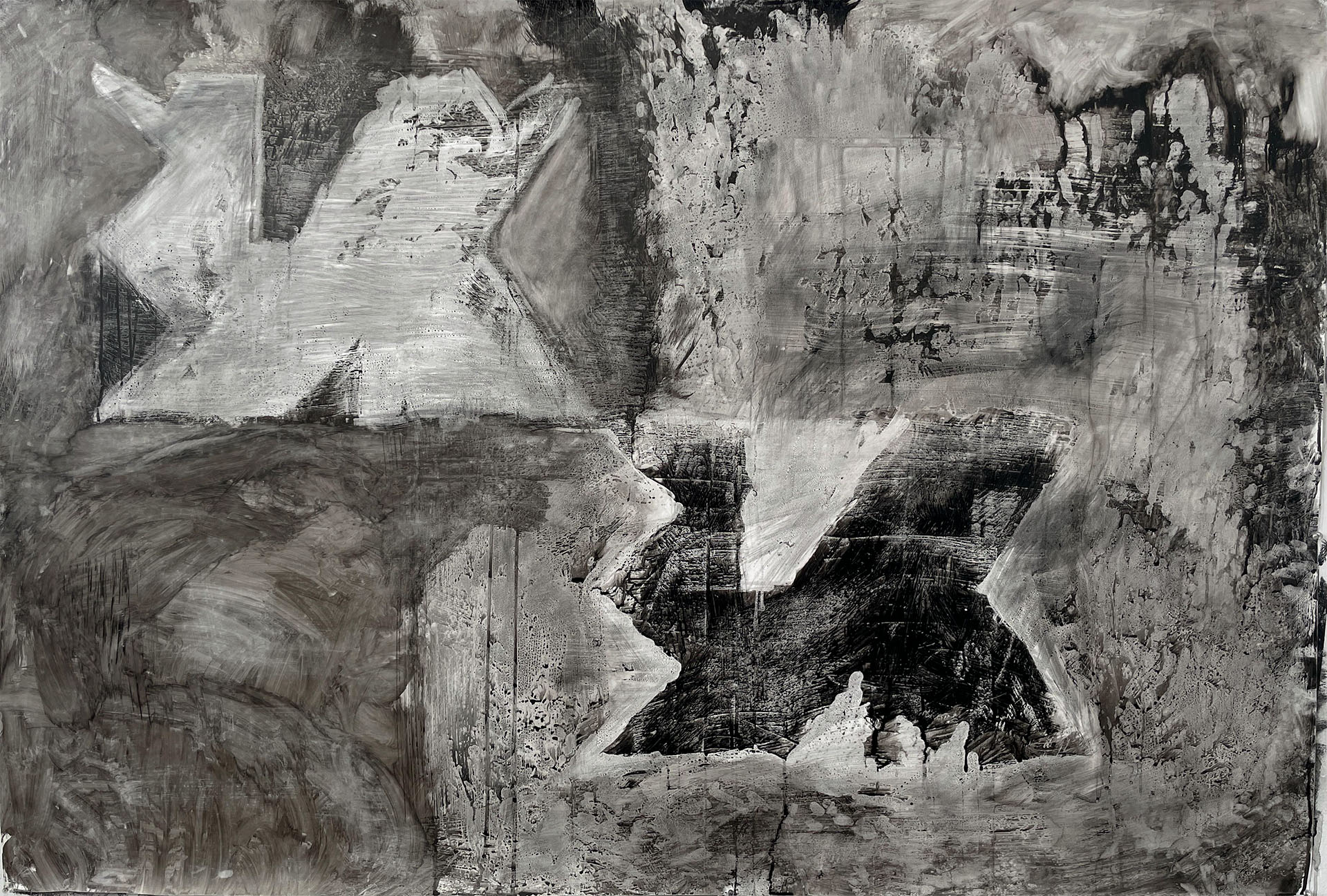2024 MSU Juneteenth Celebration
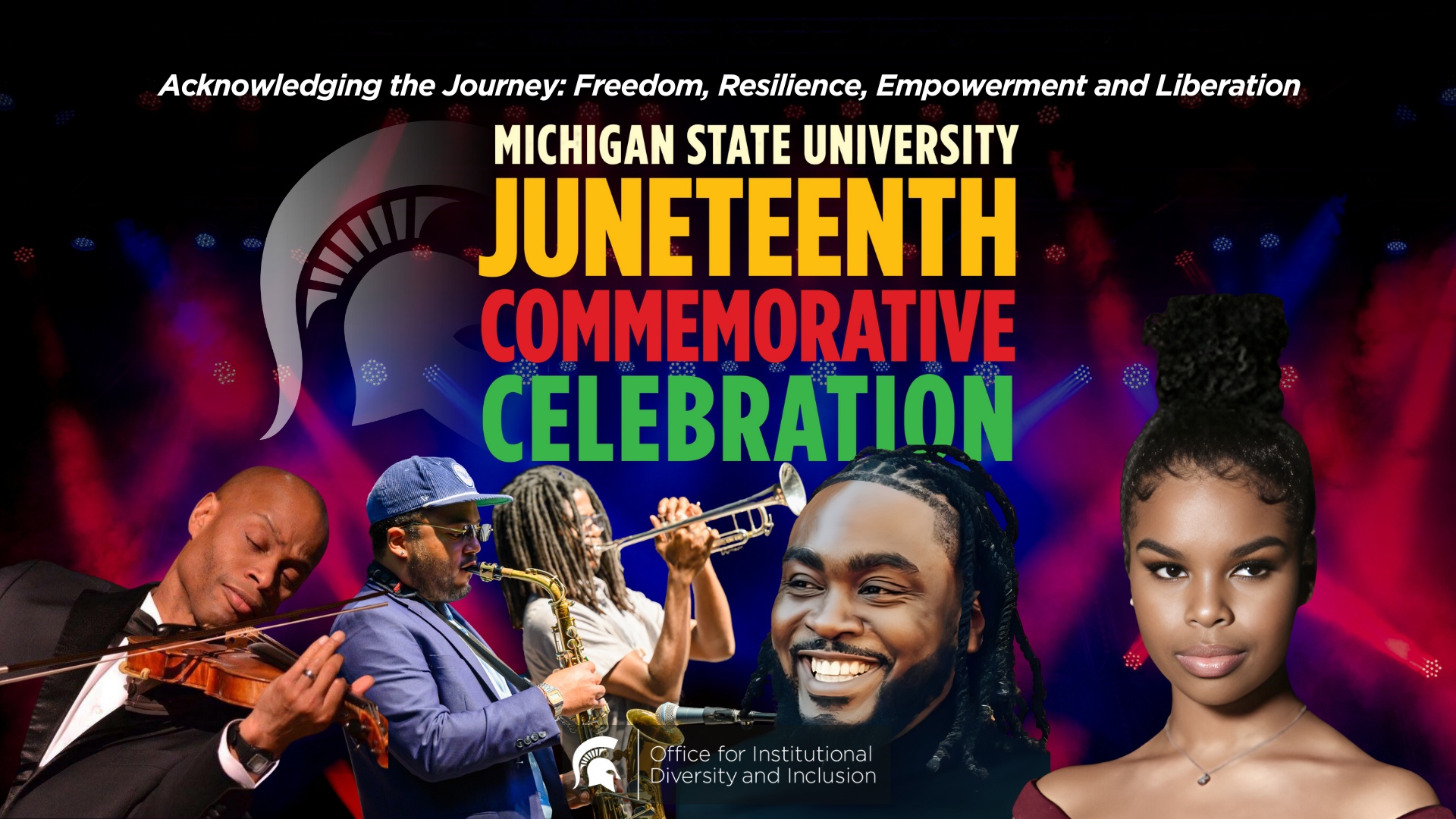
Attend the 4th annual MSU Juneteenth Commemorative Celebration on Friday, June 14, 2024, from 5 to 8:30 p.m. at the Breslin Center. Doors open at 4:30 p.m.
This year's theme is Acknowledging the Journey: Freedom, Resilience, Empowerment and Liberation.
The commemoration features the multi-faceted musician and host Rodney Page, gospel music by Gregory D and Company, jazz music by the MSU College of Music, "Lift Every Voice and Sing" by Phoenix Miranda and more.
Event Details
Students, staff, faculty, alums and local community members are encouraged to register for the celebration. There are activities for all ages. This event will not be livestreamed.
Menu
Join us for dinner, served from 4:30 PM to 7:30 PM on a first-come, first-served basis. Please hand your meal ticket, which you will receive upon check-in on the event day, to a volunteer to access the buffet line. Food will be provided by MSU's Kellogg Catering and a local Black-owned business, Sweet Encounter.
Entrees: Southern fried catfish nuggets, oven-baked BBQ chicken and karma cauliflower curry (vegan).
Side dishes: Angel eggs, macaroni and cheese, collard greens (vegan) and corned muffins (vegan).
Beverages: Sweet hibiscus tea and bottled water.
Desserts: Red velvet mini cupcakes (gluten-free), mini sweet potato pies (vegan), mini cheesecake with cherries, cherry jubilee ice cream.
Registration is encouraged to let us know you are coming!
Artwork: "Black Banner" by Morgan Renee Hill, 2024
2024 MSU Juneteenth Commemorative Celebration
Acknowledging the Journey: Freedom, Resilience, Empowerment and Liberation
Friday, June 14, 2024, 5 p.m.
Breslin Center
Featuring
Emcee: Rodney Page

Lift Every Voice and Sing: Ms. Phoenix Miranda
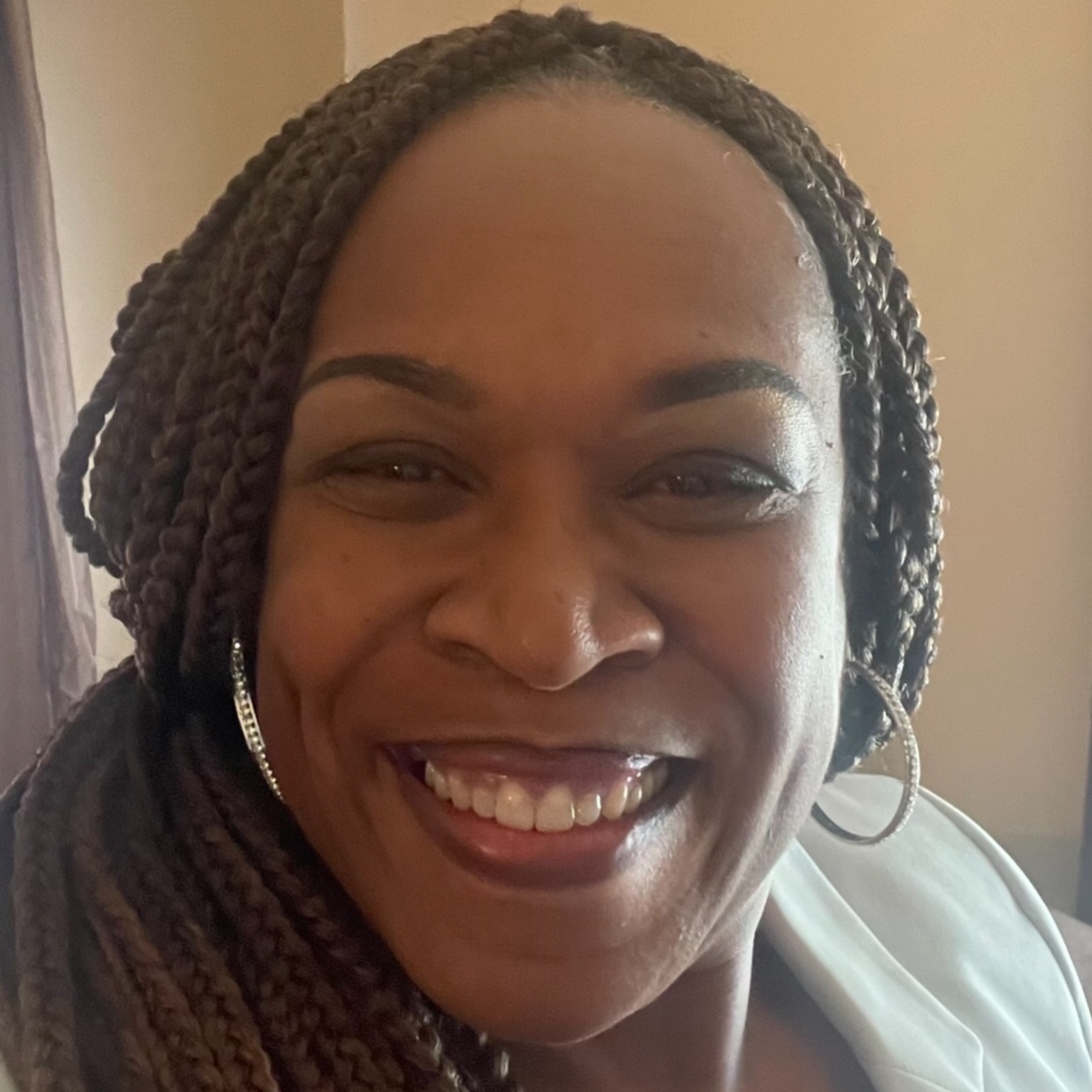
Significance of Juneteenth: Dr. Stephanie Anthony
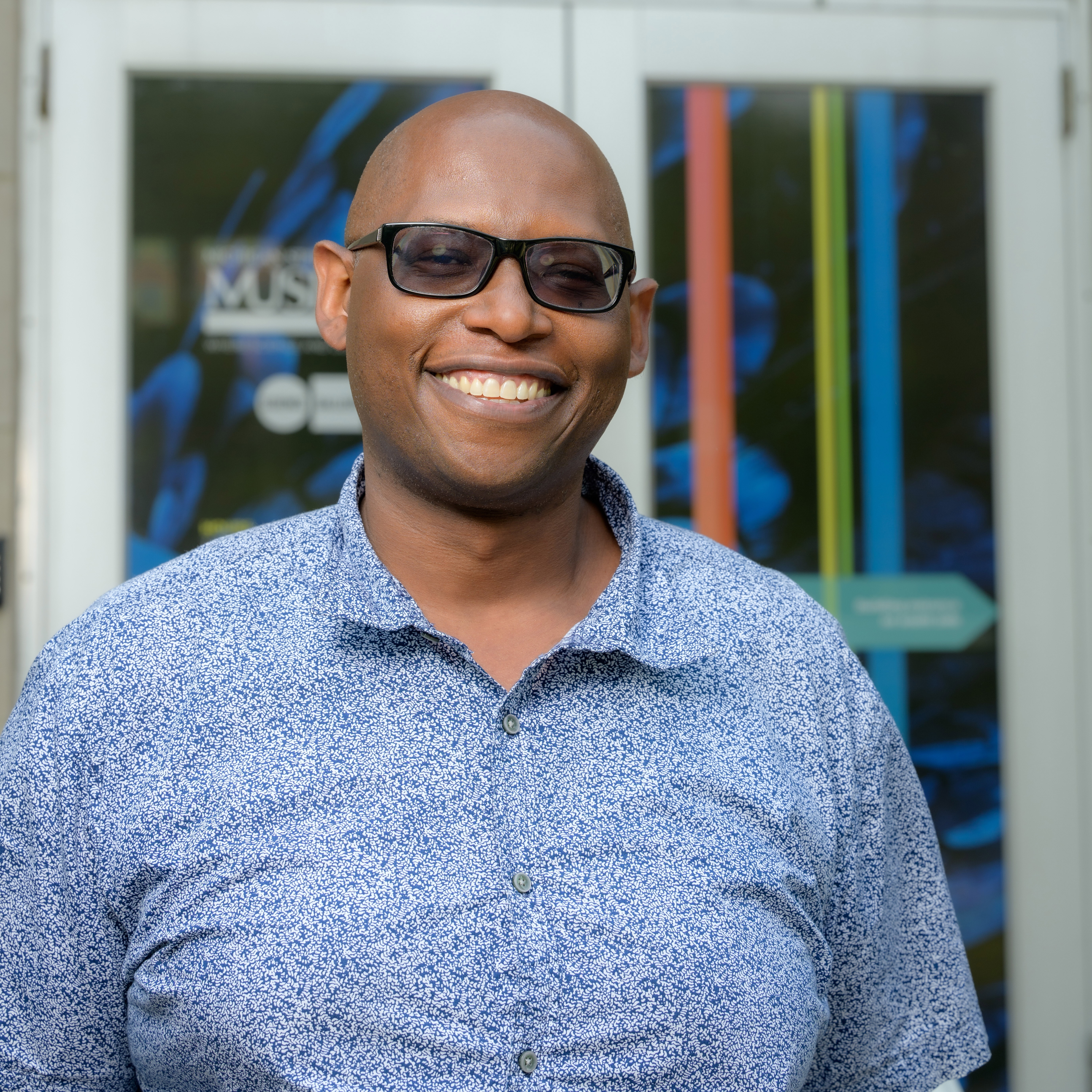
Afrofuturism Poster Exhibit: Dr. Julian Chambliss
Gospel music: Gregory D and Company

MSU College of Music: Jazz Quintet
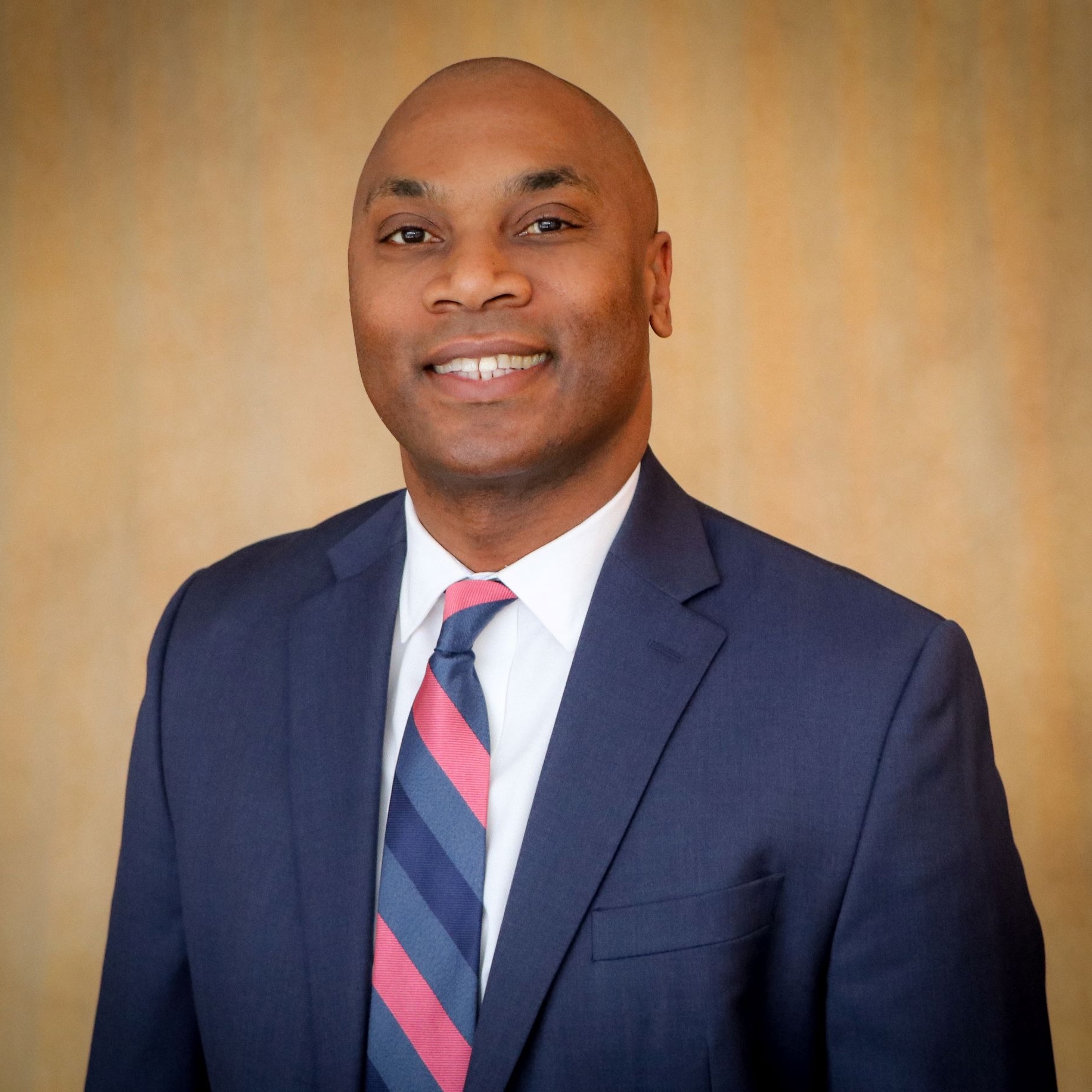
Closing remarks:
Jabbar R. Bennett, Ph.D., Vice President and Chief Diversity Officer
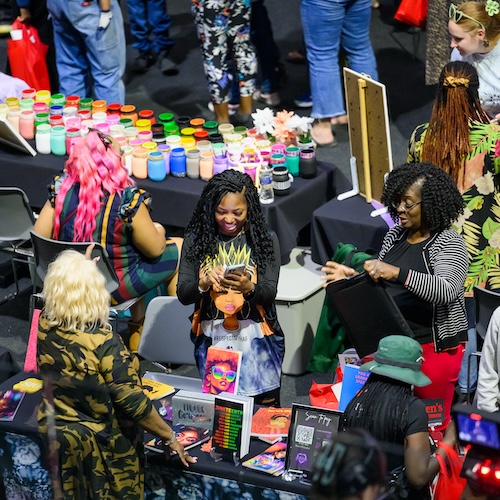
Black Wall Street Vendor Fair
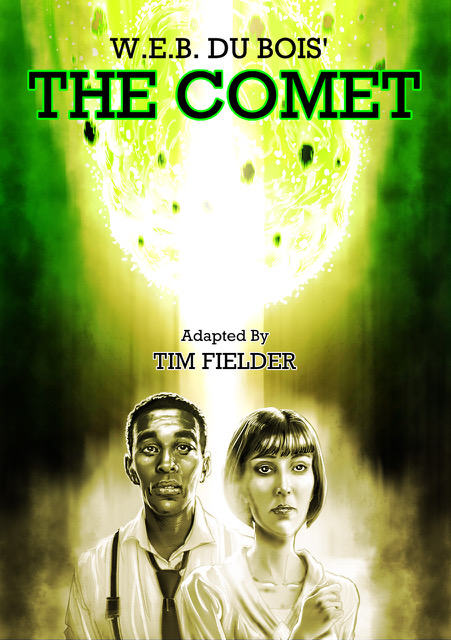
The Comet Afrofuturism Exhibit: Tim Fielder
Juneteenth artist statement
 Morgan Renee Hill, Class of '25
Morgan Renee Hill, Class of '25
Born and raised in Baltimore County, Maryland, Morgan Renee is an abstract artist who experiments with oil paint, charcoal and ink. With a multidisciplinary background, her conceptual interests range from illegibility to linguistics, invisibility, contrasts between ephemerality and temporality, geography and most importantly - spontaneous discovery.
Morgan Renee holds a bachelor of fine arts in painting from Towson University and is a master of fine arts candidate at Michigan State University in studio art. She will graduate in May 2025. Her current body of work cultivates a social practice that reflects her experiences of the everyday with her surrounding communities. She completed her solo exhibition, “Traces of Everyday,” this past November.
Black Banner (2024) is a physical documentation of rituals as a Black individual. This project uses ink and resistance techniques that represent themes of illegibility and legibility. By taking an independent study in the linguistics of Ebonics this past spring semester with Dr. Denise Troutman, I have gravitated toward what words mean to specific groups of people. The word “black” was used visually as a starting point to create an abstracted ground, or foundation, to build upon the surface of the work. By abstracting “black” into a stencil, the quadrant placement in Black Banner became reminiscent of a logo or even a family emblem. I encapsulated the joy that I felt when thinking of Blackness by playing hand games like “Miss Mary Mack” and generating a visual impression of the gestures received repeatedly with the paper attached to the wall. The surface, yupo paper, is a plastic-like surface that allows for the oils to remain on the surface. My hands were covered in coconut oil while touching the paper and this material symbolizes the act of wordlessly taking excess lotion from a familiar extended hand. If you know, you know.
Then, washing ink over the paper's surface renders the invisible as visible marks. The range of values that come from just using black ink reflects the notion that Blackness is not a monolith. In time, I came to realize I was not only representing a community through such gestures, but I was also representing my perspective as a Black individual, interpreting the way I see the communities I have interacted with. With the support of people from my hometown, Baltimore County, Maryland, and now the Greater Lansing area, their presence is a direct collaboration of my spontaneous process. I will continue to explore my intersectional identity in an ever-present presence of myself by cultivating a specific codex to respond back to my community.
Afrofuturism exhibit: Tim Fielder's "The Comet"
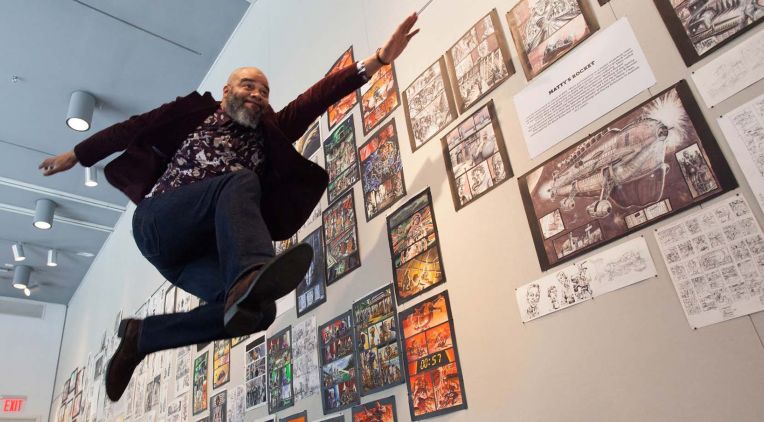 Tim Fielder, a graphic novelist known for works such as Matty’s Rocket and Infinitum, is adapting W.E.B. Du Bois’s “The Comet,” an early 20th-century short story recognized today as one of the earliest Afrofuturist stories.
Tim Fielder, a graphic novelist known for works such as Matty’s Rocket and Infinitum, is adapting W.E.B. Du Bois’s “The Comet,” an early 20th-century short story recognized today as one of the earliest Afrofuturist stories.
Professor of English and the Val Berryman Curator of History at the MSU Museum, Julian C. Chambliss, will bring the Carnegie Hall featured artist to MSU for a special Afrofuturism exhibit at the Breslin Center event. Visitors will have the opportunity to meet Fielder and learn more about “The Comet,” due out in fall 2025.
Fielder was featured in Afrofantastic: The Transformative World of Afrofuturism, created by Chambliss in 2023.
Juneteenth Poster Design Contest:
Honorable Mention
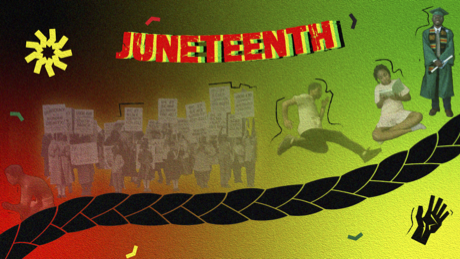
"An Optimistic Path," 2024, by Rageon Thomas, bachelor of fine arts student in graphic design.
About Juneteenth
On June 19, 1865, two-and-a-half years after the Emancipation Proclamation orders were given to free the over 250,000 African American slaves in Texas who had not yet been informed of the decree. Juneteenth, short for June nineteenth, is the oldest known celebration commemorating the ending of slavery in the United States.
A century and a half later, Juneteenth is not taught in schools or widely known. MSU recognizes the importance of celebrating the full history of the U.S. so that everyone receives the recognition they deserve as builders of a great nation.
How to participate
Enter the poster design contest: Calling All MSU Students! You are invited to participate in the annual poster design contest to demonstrate your talent by submitting art that represents your original interpretation of the theme. The contest winner will receive $500, recognition at the event with artwork displayed in the Breslin Center and distributed as print posters to attendees. To be eligible, students must be currently enrolled and submit their information following the contest rules PDF and submission form by the deadline in the form.
Sign up for the Black Wall Street Vendor Fair: The Juneteenth Planning Committee invites local entrepreneurs to apply for vendor space. Complete the vendor application form.
Volunteer: The committee is looking for volunteers for the day to help with set-up, check-in, traffic direction, take-down and other activities. Sign up to volunteer
Community events
(MSU and local)
MSU Libraries - Imagining Black Futures
June 17 - 21, MSU Libraries main lobby
MSU Libraries Staff Summer Series presents a celebration of Juneteenth installation.
Afrofuturism and Quilts: Materializing Black Futures and Black Womxn’s Quilt Legacies
April 5 - July 19, MSU Union Gallery
MSU Museum hosts an exhibition exploring the theoretical connections between quilts/quiltmaking and Afrofuturism.
Local celebrations
Delta Township Juneteenth events
Meridian Township Juneteenth Over Lake Lansing
Wiki
Juneteenth - On June 19, 1865, two-and-a-half years after President Lincoln’s Emancipation Proclamation and a couple of months after the end of the Civil War, newly posted Major General Gordon Granger issued orders to free the over 250,000 African American slaves in Galveston, Texas, who had not yet been informed of the new law. Juneteenth is considered the oldest known celebration commemorating the ending of the enslavement of African Americans and Black people in the United States.
Although, Juneteenth has been celebrated since the late 1800s, it was not federally recognized as a national holiday until June 17, 2021, when President Joe Biden signed a bill officially designating June 19 as a federal holiday commemorating the end of slavery in America.
Afrofuturism - The cultural aesthetic, philosophy and movement that explores the intersection of the African/Black diaspora with the alternative visions and imaginations of Black liberation.
African/Black diaspora - The descendants and global community of Black West and Central Africans who were enslaved and shipped to the Americas via the Atlantic slave trade between the 16th and 19th centuries.
Black National Anthem - 'Lift Every Voice and Sing' (poetry and lyrics) by James Weldon Johnson
Black Wall Street - Also known as the Greenwood neighborhood in Tulsa, Oklahoma, where in the early 20th century African Americans created a self-sufficient prosperous business district that was destroyed in 1921 due to racial violence.
Green Book -The Green Book was a travel guidebook specifically designed for African American travelers during the era of racial segregation in the United States.
Harlem Renaissance - The Harlem Renaissance was an intellectual and cultural revival of African American music, dance, art, fashion, literature, theater, politics and scholarship centered in Harlem, Manhattan, New York City, spanning the 1920s and 1930s.
Idlewild - Idlewild, or the "Black Eden of Michigan," was one of the few resorts in the country where African Americans could safely vacation from 1912 through the Civil Rights Act of 1964.
Freedom - the power or right to act, speak or think as one wants without restraint.
Liberation - securing equitable, social, economic and judicial rights.
Sponsors and committee members
Sponsors
We thank our many sponsors for contributing funds to support the MSU Juneteenth Celebration:
Broad College of Business, Capital Area Transportation Authority (CATA), Case Credit Union, Clerical-Technical Union of MSU, College of Agriculture and Natural Resources, College of Communication Arts and Sciences, College of Education, College of Engineering, College of Human Medicine, College of Music, College of Natural Sciences, Department of History, Government Relations, Honors College, James Madison College, Michigan State University Federal Credit Union, MSU Libraries, Office for Civil Rights and Title IX, Office for Institutional Diversity and Inclusion, Office of Research and Innovation, Office of the Provost, Plante Moran.


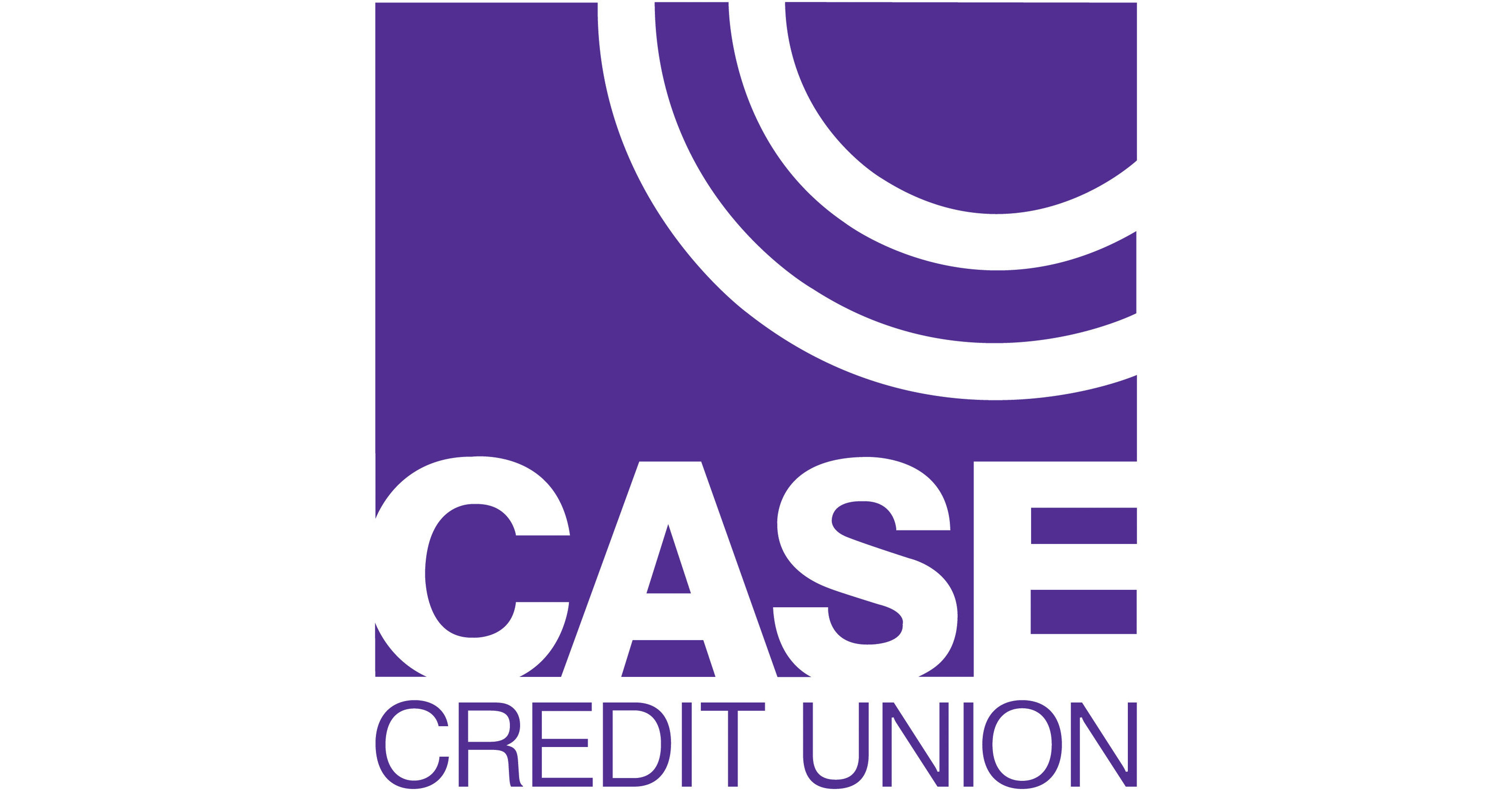
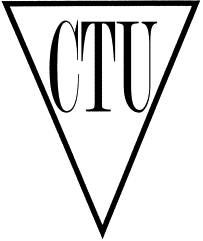

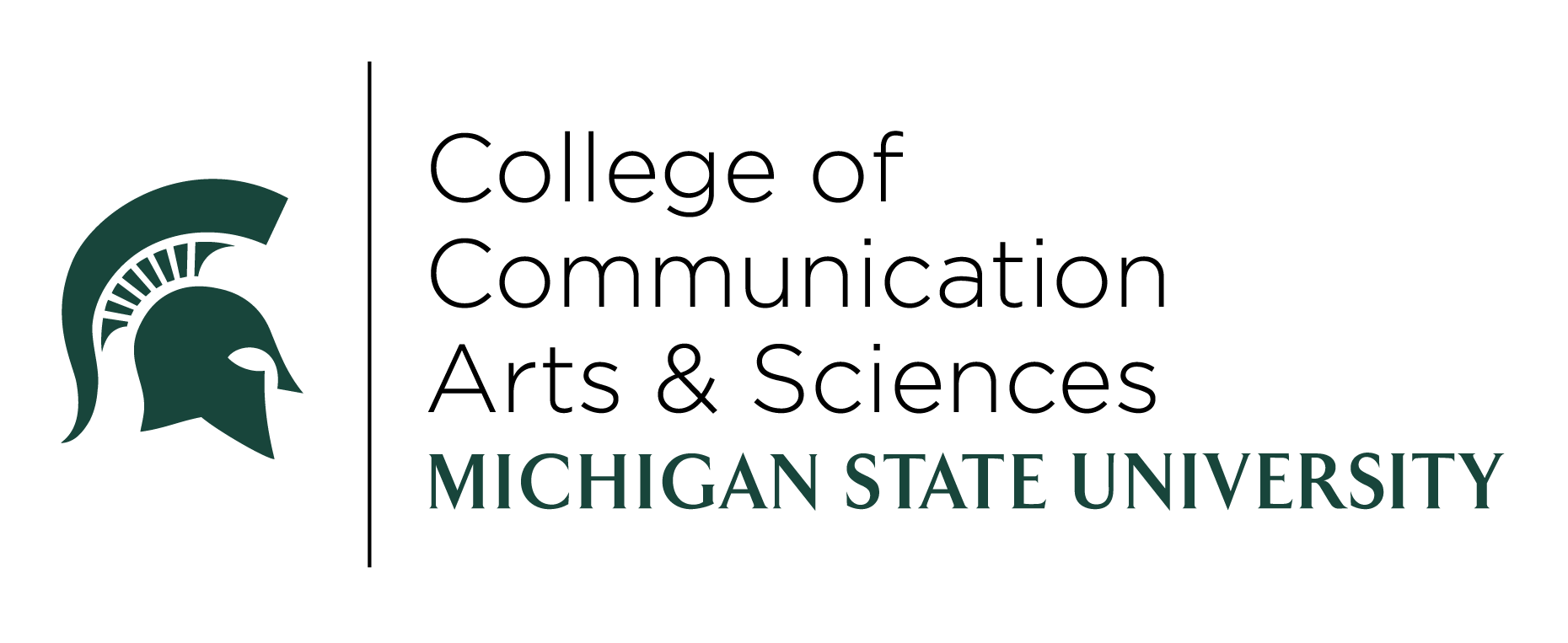















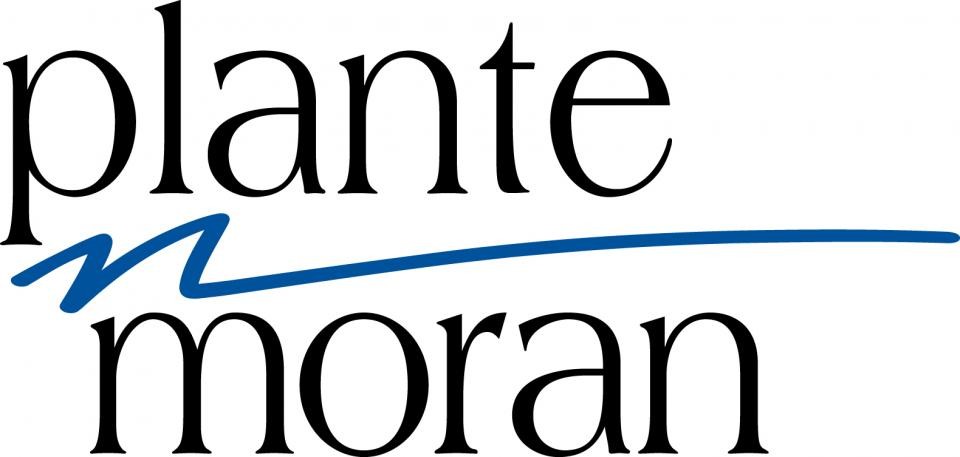
Planning committee members
- Yolanda Anderson, Ph.D., Academic Specialist, College of Engineering
- Melissa Del Rio, Chief of Staff, Graduate School
- Darren (Dee) Dubose, Ph.D. Candidate, Educational Administration, College of Education
- Amanda Flores, Ph.D., Senior Director of Diversity, Equity and Inclusion, WKAR Public Media
- Marshanda Smith, Ph.D., Assistant Professor, Matrix: The Center for Digital Humanities & Social Sciences
- Marquis Taylor, Program Coordinator, Multicultural Business Programs, Broad College of Business
- Antonio White, Ph.D. Candidate, Neuroscience Program, College of Natural Science; President of the Black Graduate Student Association
Professional and support staff
- Audrey Bentley, Senior Coordinator, Community Outreach, Office for Institutional Diversity and Inclusion
- Evette Chavez, Fiscal and Human Resources Officer, Office for Institutional Diversity and Inclusion
- Brady Velazquez, Equity and Compliance Coordinator, Office for Institutional Diversity and Inclusion
- Lisa Fuentes, Staff Assistant, Office for Institutional Diversity and Inclusion
- Henry Mochida, Diversity and Inclusion Communications Manager II, Office for Institutional Diversity and Inclusion and University Communications
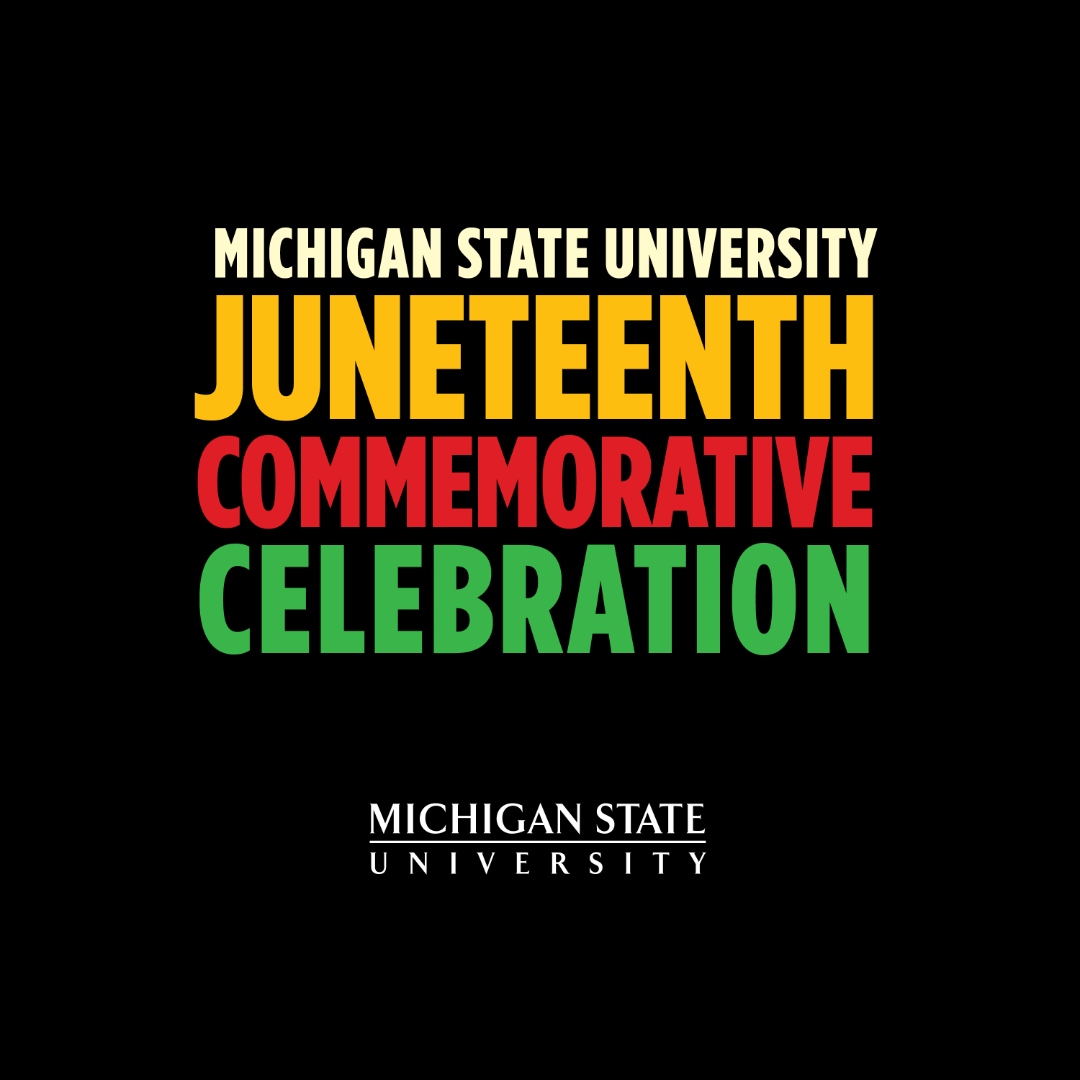
Communications
Download the promotional kit
Program coordinator: bentley@msu.edu
Communications contact: mochidah@msu.edu



